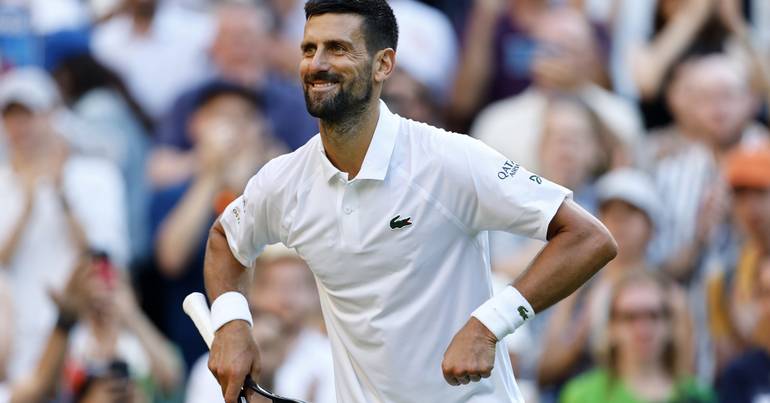

In the gentle weave of daily events, notable progress and discussions have emerged across various spheres of life, reflecting both the dynamism and challenges of the modern world. Amidst these, the realms of sports, housing legislation, and scientific organization within Portugal have presented engaging narratives, underscoring a blend of triumph, legal discourse, and strategic planning.
The world of sports remains a source of inspiration and excitement, as the seasoned Serbian tennis player Novak Djokovic continues to captivate fans with his remarkable performance. At the age of 38, Djokovic has secured his place in the semi-finals of a prestigious tennis tournament for the 14th time. This achievement emerges from his latest competition against the Italian Federico Cobolli, which proved to be a spirited encounter, showcasing his enduring skill and dedication to the sport. Djokovic’s semi-final match will see him face Jannik Sinner, the current leader of the world ranking, promising yet another thrilling chapter in his illustrious career.
Elsewhere, the narrative of housing and legal reforms unfolds with thoughtful contemplation. A significant conversation is taking shape around the penalties for illegal occupation of property. While the unauthorized taking of occupied homes is already criminalized under the Penal Code, the discussion is geared towards strengthening penalties, particularly in cases involving violence. This initiative primarily driven by right-wing political factions, aims to address property rights and enhance legal safeguards. However, this proposed aggravation of penalties brings with it differing perspectives, with left-wing representatives cautioning against reactions based primarily on perceptions rather than grounded on balanced, comprehensive assessments.
In the domain of science and education, a thoughtful dialogue has emerged about the structural organization of the Fundação para a Ciência e a Tecnologia (FCT). Manuel Heitor, the former Minister of Science, Technology, and Higher Education, offers insights into potential reforms. Addressing the proposed singular career status for researchers as introduced by the government, Heitor provides a nuanced critique, suggesting that current measures may fall short of addressing long-standing issues of precarity among researchers. This discourse highlights the ongoing need for strategic alignment and comprehensive planning within the scientific community, ensuring that advancements in research are met with equitable and sustainable career frameworks for those dedicated to scientific pursuits.
These unfolding stories, each distinct yet interconnected, reflect the tapestry of societal growth and adjustment. Novak Djokovic’s sporting achievements emphasize the enduring spirit of human endeavor and passion, inspiring audiences with each match. Concurrently, the discourse surrounding housing laws serves as a reminder of the importance of harmonizing legal frameworks with societal values, ensuring that the protection of property rights remains balanced with social equity considerations. Meanwhile, the reflections on scientific organization underscore the ongoing journey towards creating optimal conditions for innovation and discovery, nurturing the talent and potential of researchers who illuminate paths to collective understanding and progress.
As these narratives progress, they invite reflection on how individual achievements, legal frameworks, and scientific strategies collectively shape the world we live in. Each taking its course, they are threads in the larger fabric of life, inviting society to engage with and thoughtfully navigate the complexities and opportunities on the horizon. Together, they weave a calm and hopeful outlook on the present and future, encouraging a mindful embrace of the evolving world around us.
Source: {link}
